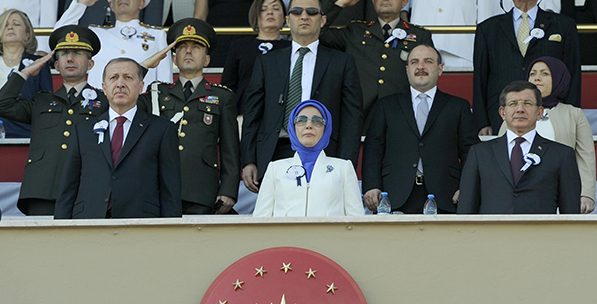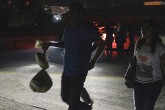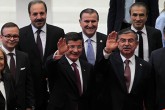After Turkey’s ruling Justice and Development Party (AK party) proved unable to form a coalition government with other parties in parliament, President Recep Tayyip Erdogan used his constitutional authority to call for an early election.
In November, Turkish voters will go to the polls for the fourth time in the last two years and the second since June.
The newly formed interim government will oversee the country during this period. This is also the first time an interim government was formed after the failure of the political parties to form a coalition.
Erdogan’s decision to call for snap elections generated some criticism from opposition parties. These parties had attempted to bring down the AK party-led government, but they could not even manage to form a government among themselves – despite having the sufficient number of seats in parliament to do so.
The three opposition parties could not even agree on a candidate for the office of parliament speaker.
Despite the opposition parties’ failure, Erdogan was accused of torpedoing the coalition-forming process.
In recent weeks, the opposition frequently quoted Erdogan’s statement regarding the constitutional powers of his office and his intention to fully exercise them. They went as far as calling it a “civilian coup”.
FAILURE OF OPPOSITION PARTIES
There are several reasons why the debate moved from the post-election coalition talks, to focus on Erdogan and his presidency.
First, in the previous election, the mainly Kurdish, Peoples’ Democratic Party (HDP) based its campaign rhetoric against Erdogan. Some commentators argued that the message “we will not let you become the president” helped the party cross the 10 percent threshold in the elections.
This strategy appears to have worked for them, so the opposition parties will almost certainly repeat it in the next election.
Second, an election strategy based on pitting themselves against Erdogan alone would be nothing more than a diversionary tactic, meant to distract the voting public from the failures of the opposition parties themselves, namely to engage in constructive post-election talks to form a coalition government.
Immediately after the June 7 elections, the Nationalist Action Party (MHP) expressed its unwillingness to cooperate with the HDP or the Republican People’s Party (CHP). This uncooperative attitude was clearly exposed in the aftermath of the election of the parliament speaker when opposition parties exchanged accusations.
Thus, even if the opposition parties were given the mandate to form a coalition government, it was unlikely they would have come together to cooperate.
The opposition parties are aware that the AK party is expected to win yet another election in November.
Although there are different projections about the number of seats that the AK party will receive, opinion polls suggest that the party will win by a large margin and the main opposition CHP will be a distant second.
Under these circumstances, the primary goal of the opposition parties will be to attack the personality and the office of the president instead of waging a serious campaign battle against the AK party.
If Erdogan responds to the opposition’s attacks, the parties will accuse him of breaching his constitutional impartiality.
DOMESTIC LEGITIMACY
All things considered, what role can Erdogan play to help stabilise the political situation in Turkey and what will be the outcome of such efforts?
The constitutional amendment in 2007 allowed for the direct election of the president by the Turkish electorate, which significantly changed the nature of the traditionally ceremonial but powerful office.
Although the presidency was bestowed with greater powers compared to its much more symbolic counterparts in other parliamentary democracies, the president’s office gained a significant degree of democratic legitimacy when the incumbent was directly voted in by the
In this article
- Domestic Policy
- Opinion
- 2007
- Elections
- Opposition
- Recep Tayyip Erdoğan
- The President of the Republic of Türkiye
- Turkish President
- Türkiye's Justice and Development Party | AK Party (AK Parti)
- Türkiye's Peoples' Democratic Party (HDP)
- Türkiye's Republican People's Party (CHP)
- Türkiye’s Nationalist Movement Party (MHP)



